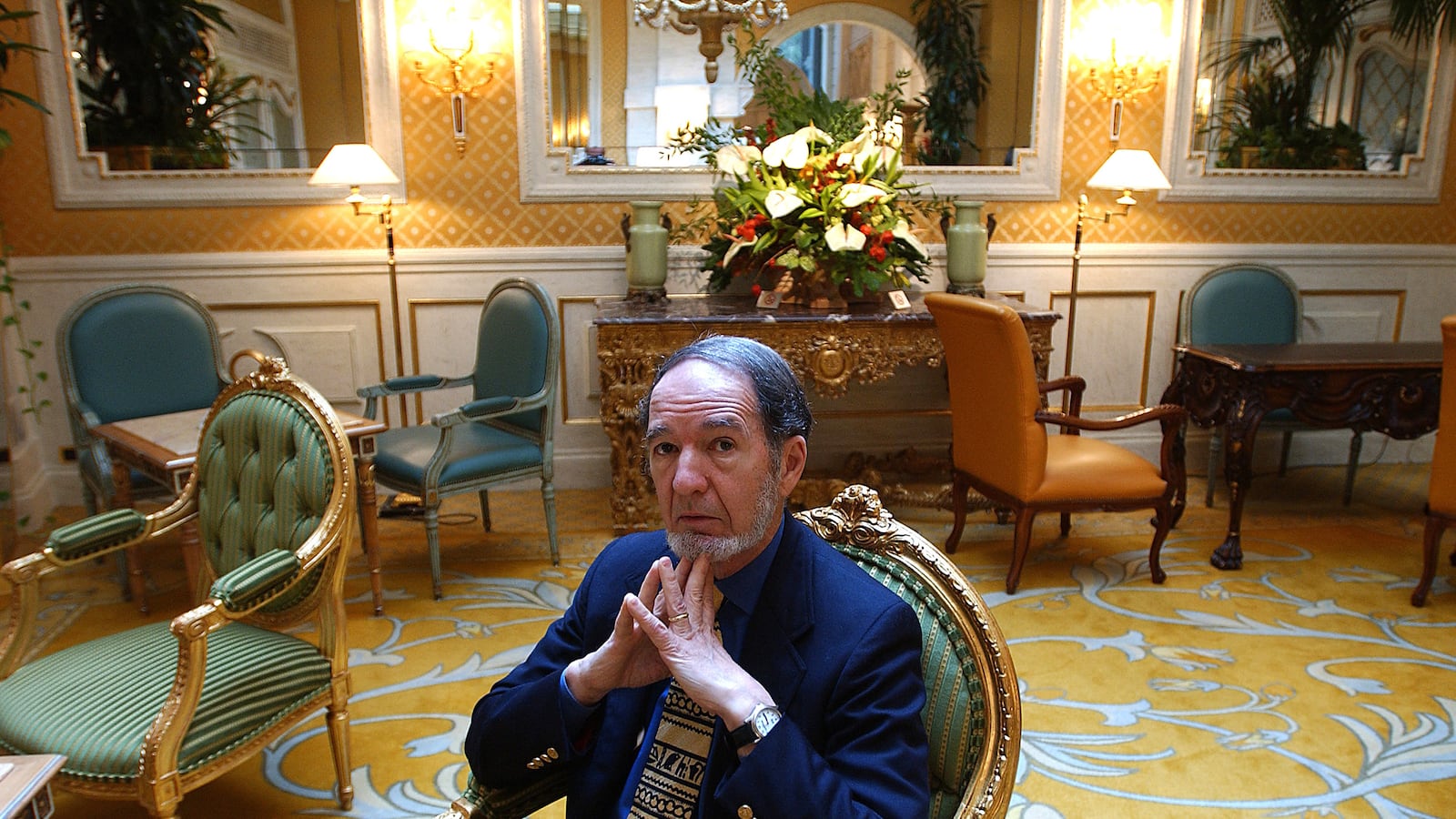
Describe your morning routine.
My morning on any day, regardless of whether I’m writing or not, is the same. I get up around 6am, and I go for a bird walk on my street. I live in a dead end rural canyon in Los Angeles, which is very good for bird-watching. I just came back ten minutes ago from my morning walk, which lasts between an hour and a half and two hours. My bird list for my street is 149 species! Pretty good, by North American standards.
What’s the most exotic bird you’ve spotted?
There are so many wonderful birds here. As an example, on the street yesterday I found a Winter Wren. The smallest of the American Wrens. In the winter it comes to Los Angeles, but they usually hide in thickets. This bird is only the second Winter Wren record I’ve got in 37 years on my street. That was exciting.
What is a distinctive habit or affectation of yours related to writing?
My first inclination is to say that I don’t have any. When I think of what I actually do, the first thing I do is clear space on my desk, because there are piles of other projects scattered around it. Much of my time in producing books goes not into the writing, but into reading material that will go into the books, and sketching or dictating notes on those books. There’s a lot that happens before I start writing.
Could you tell us about your research approach? What does a research day look like for you?
My research consists of… As background, my books typically consist of a dozen to two dozen chapters on related subjects. For instance, my latest book, The World Until Yesterday, has 11 chapters on traditional societies. One is on bringing up children, another on old age, another on health … I do the chapters one at a time. Lots of reading, talking to people who are experts on the subject, because these are generally not my specialty. So the first step is reading and interviewing, then dictating my notes. Then, at a later stage, once I’ve done all the reading, I take my notes. I figure out the approximate outline, the sequence of subject matter for the chapter, numbering the material. Then I photocopy all my notes, and go through the photocopies and add numbers to the notes so I know where each note fits into the outline material, where that particular topic in the outline is covered. I then cut them out and assemble them into a couple of pages, so I then have, bunched together, the material for that particular topic. For example, in the chapter on bringing up children, there’s a section on children’s approach to danger. Another section on weaning of babies. So I’ll assemble my notes on these subjects, and then I start writing…or, rather, scribbling.
Is there anything distinctive or unusual about your work space?
Yes, what strikes people most as unusual is that my computers are so miniaturized that they are invisible. In fact, they don’t exist. I don’t use a computer. I do all my writing by scribbling, then dictating. Then my secretary types up my material, prints it out, and then I revise using a 0.7 mm blue pencil. We go through iterations until I’m happy with the result. So no computer. Every time people have tried to show me how to use a computer, I’ve grown frustrated and given up.

How do you choose the subjects for your books? Or perhaps I should phrase is another way: when you come across a subject, what about it needs to speak to you, in order for you to consider it a future book topic?
The simple answer is whatever most interests me when I’m finishing my previous book. The topics of my books are things that I’ve been thinking about for a long while. For instance, The World Until Yesterday is about traditional small-scale societies, like the tribal New Guinea societies where I’ve been working for the last 50 years. I’ve had in the back of my mind for decades that I’d write something about my observations with traditional societies. When I finished my previous book, Collapse, I was then ready to proceed to this book. Now that I’ve finished The World Until Yesterday, I’ve been thinking it’s time to address another long-term idea, on crises in national societies. My wife is a clinical psychologist who works on crises and choices in individuals. So the next book will be on crises and choices in both individuals and national societies. But again, it’s a topic that’s been percolating for many years.
When you won the Pulitzer Prize, did anything shift in the way you approach work and writing?
It didn’t change my approach to writing. My procedure for writing Guns, Germs and Steel, the book that won the Pulitzer, was the same as for the other books. The main consequence was that I became much better known. For practical purposes, my being better known has the upside that scientists whom I call and ask for explanations of their work, they’re more likely to respond immediately. The downside is that there are plenty of jealous, angry people out there who dislike me more as a result of my winning the Pulitzer.
What is guaranteed to make you laugh?
A joke at the intellectual level of a 10-year-old, or a joke I heard when I was 10. The best jokes I know are the ones I heard between ages 8 and 13. I’m not interested in “sophisticated” jokes.
What is guaranteed to make you cry?
Both my wife and I have connections with concentration camps, so any discussion of that subject… My wife works on patients with cancer, so discussions of people dying are always good to get me started…
Do you have any superstitions?
I would say no. I have rational responses. I don’t walk under ladders, not because of any superstition, but because I’ve looked at the statistics, and it’s just not a good idea to walk under ladders!
If you could bring back to life one deceased person, who would it be and why?
It would be Johann Sebastian Bach. For so many reasons. One, we’re not sure how he performed his music: fast, slow, which manual he was playing on the organ. How was he so productive? How did he churn out one cantata every week? Was he scribbling his cantatas up to the day before the performance? Why did he get into arguments with petty people, like the trumpeter in his town? He’s an interesting person and the greatest of all composers.
What is your favorite snack?
I avoid snacking. The last chapter of my most recent book was about why one should not snack. It’s about the dangers of being obese in the modern world. No, I do not snack while writing or on other occasions! I take that back … In the kitchen at the moment is a box of my wife’s chocolate chip toll house cookies that she made last night. After passing back through the kitchen after my bird walk, I ate one of her toll house cookies, which I’m afraid does constitute snacking…
As long as you weren’t writing at the time, it’s OK.
That’s right!
Was there a specific moment when you felt you had “made it” as an author?
Gosh. Let me turn the question around. There was no moment I felt I “made it” as an author. There was a moment when I felt that I better get serious as an author. That was when I received the phone call, in 1985, telling me that I’d won one of the MacArthur Fellowships—those are the ones they call “genius” awards. It consists of support for five years. You’d think that call would make anyone else excited and ebullient. In fact it plunged me into the only depression I’ve ever had in my adult life. The reason is that it made me realize: Jared, these people think you can do important things. Look back at what you’ve done with your life. You haven’t lived up to their expectations for you. You better start doing something to live up to them!
Let me follow-up and ask what the next project was that you set your sights on after this epiphanic moment?
The next project was my first book for the general public. Until 1985, I’d only been writing articles for popular magazines (Discover, Nature). That phone call made me realize that more is expected of me. I should write a book. So I spent the fellowship working on The Third Chimpanzee.
Tell us a funny story related to a book tour or book event.
My father and my mother both came from large families, my mother the youngest of nine, my father one of thirteen—my father had 52 first cousins. Naturally, I don’t know all 52 cousins. But when I go on book tour, I average one to two cousins who come up to me after a talk, people I’ve never met before, and they say, Jared, I’m your cousin.
Tell us something about yourself that is largely unknown and perhaps surprising.
Few people aside from friends know that I play piano. But I used to play the organ, which is where I developed my love for Bach. But…I’ll tell you two things. Few know that I also learned the viola, but gave it up after a year. I learned it at age 23, but I was just too old to learn it well. And I attempted to be the conductor of an orchestra. I actually did conduct a performance once. But I discovered that I would be a failure as a conductor, because I’ve got very good hearing and musical sense of time. To be a conductor, you have to beat the beat before the musicians play the notes, to account for the distance between the conductor and the musicians. It means that you’re beating time, while ignoring the music of the musicians. I was unable to do that, so I was a failure as a conductor.
What advice would you give to an aspiring author?
Well, if the expiring … oops, slip of the tongue. If the aspiring author is an academic, that’s to say a professor at university, and the person wants to write for the general public, I’d say, For heaven’s sake, don’t do it until you’ve got tenure! There are lots of academics who will envy you, and try to block your academic career. Don’t you dare write a book before you’ve got a permanent job, or your chances of a permanent job in academia will be decreased. Start writing for the public after you have job security.
What would you like carved onto your tombstone?
Gosh. I don’t have an answer, because my present intention is to be cremated and not have a tombstone at all. A tangential answer to your question would be, what am I proudest of? I’m proudest of having contributed to the happiness of my wife and my children.
This interview has been edited and condensed.






